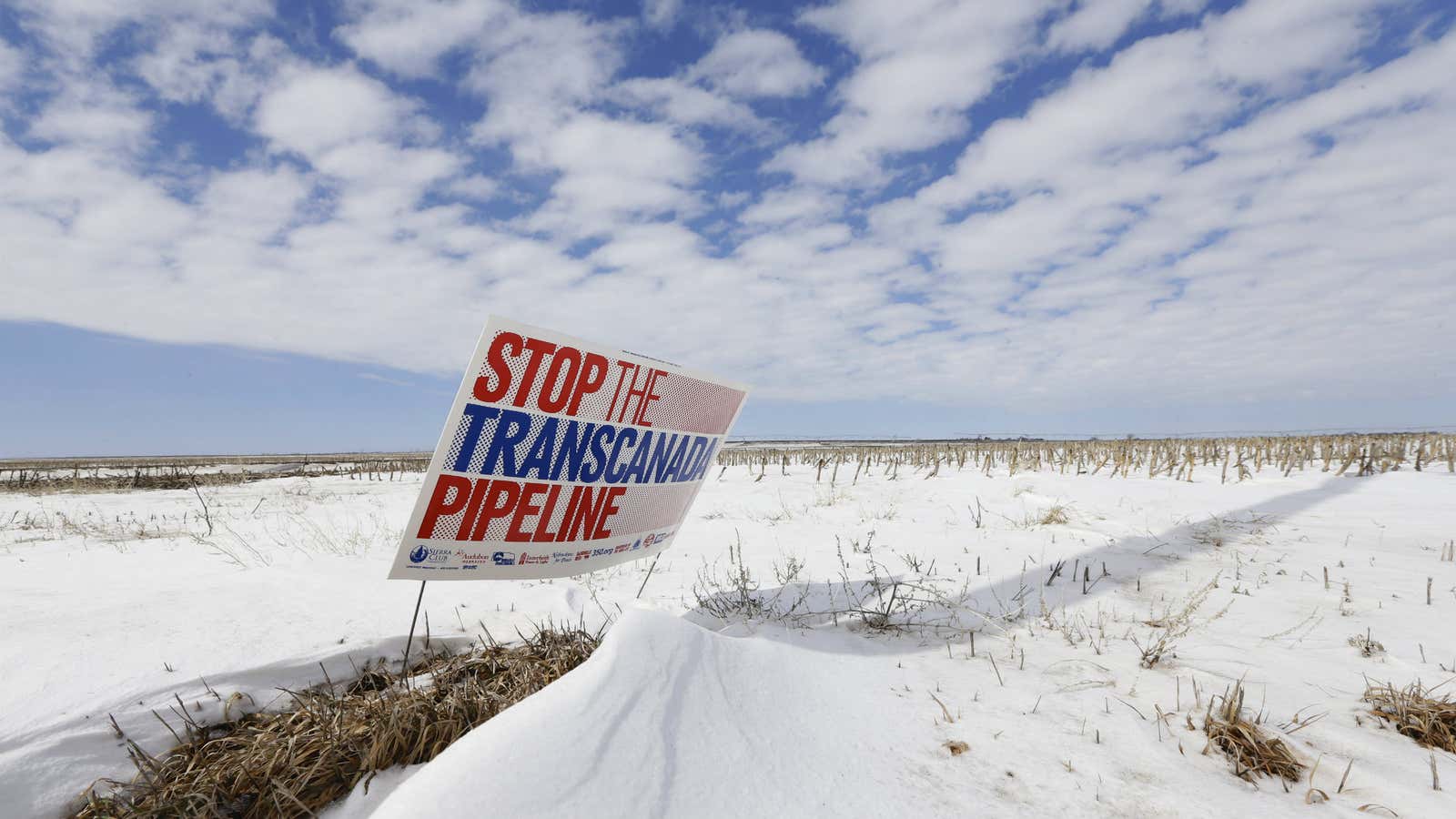In China, Europe and the US, local groups are furious, respectively, over air pollution, shale drilling and oil pipelines. This makes it a dangerous time for oil companies and some governments: A riled public is often the greatest driver of big policy shifts.
The latest news is a leaking oil pipeline in the central Arkansas town of Mayflower. The pipeline, controlled by ExxonMobil, has leaked thousands of barrels of oil. The material damage thus far is mild—two dead migrating ducks, and about 11 of the birds recovering in a rehab center with oily feathers, according to Exxon spokesman Alan Jeffers.
But the deepest damage will probably not be to Mayflower. It will be to Keystone XL, a much larger pipeline that Exxon and other companies are pushing to be built from Canada to the US. Environmentalists have called the spill evidence that Keystone should not be approved by President Barack Obama, at least not yet.
Jeffers rejects the assertion. “That’s like calling a car wreck on the corner evidence that you shouldn’t use cars anymore,” he told me. He is right in principle—the Mayflower spill says nothing definitive about the rights or wrongs of building a geostrategically important, cross-continental oil line. But the Exxon man’s opinion isn’t necessarily valid in the court of public opinion, which is not always so rational.
I still think that Obama will approve Keystone on its merits. But the Exxon spill makes it harder, especially when the public watches videos such as this one, or sees photos such as these Quartz published. It erodes Jeffers’ central argument, which is that “pipelines are the safest and most efficient way to move oil and natural gas around the country.” They may be the safest. But that does not mean they are safe.
Let’s look at China. There, local anger over worsening pollution has led the Beijing municipal government to put a cleanup at the top of its 2013 agenda. In February, the ruling State Council said it will make fuel cleaner. The reason is that rising income in China has created higher expectations. Ordinary Chinese are less tolerant of a head-long policy of GDP growth at any price when 1.2 million of them are dying prematurely because of air pollution—which is what happened in 2010, according to a December report. This shift in public opinion has led to government fears of more social discontent, and action to stem the pollution.
Similarly, Europe is conflicted about hydraulic fracturing, the drilling method used to develop shale gas and oil fields. Fracking, as it is known, has created an oil and gas boom in the US. But the UK is among the European states that are concerned about the possible dangers of fracking. So is France, which banned the practice in 2001, and Bulgaria.
In a 2012 report, Control Risks, the security consultants, says: “The oil and gas industry has largely failed to appreciate social and political risks, and has repeatedly been caught off guard by the sophistication, speed and influence of anti-fracking activists.”
Shale gas drillers—like US pipeline advocates and China’s rulers—need to stay alert for the swings of public opinion, or suffer the confounding of their objectives.
